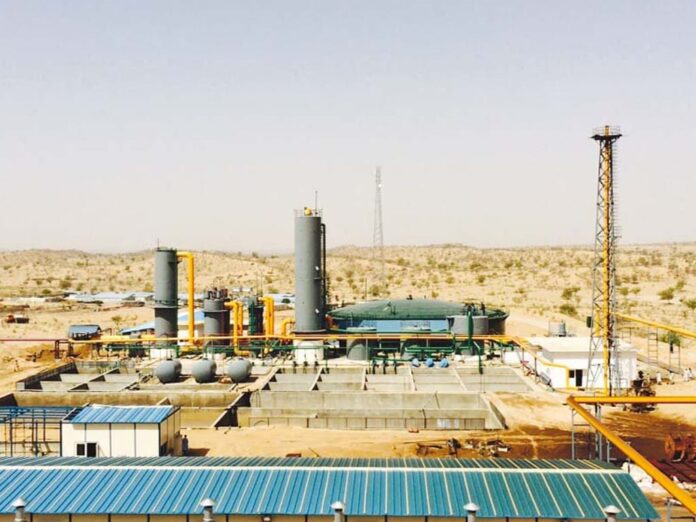Typically, when covering news on the PSX, Profit tries to piece together why a company is behaving in this manner. Is it their cash flow? Are they optimistic about their future? Are they defaulting?
But one piece of news submitted to the PSX on March 8 is unusual, in that it says very little about the actual company announcing it ie. the Pakistani firm ‘the Hub Power Company’. Instead, it says a lot about the other company mentioned in the notice: the Italian multinational oil and gas company ENI. The giant has a presence in 66 countries, as of 2019 – and now, in 2021, it will operate in 65. The company is exiting Pakistan.
According to the notice, Hub Power Holdings Limited, which is a wholly owned subsidiary of The Hub Power Company Limited, together with ENI’s local employees (in a 50:50 joint venture) has executed definitive agreements to acquire all the upstream operations in Pakistan of Eni and renewable energy assets owned by Eni in Pakistan. The above transaction is subject to requisite compliance(s) with applicable legal and regulatory processes and approval from competent authorities. The actual figure of sale has not been released yet.
Separately, on March 9, ENI released a statement: that the joint venture is called Prime International Oil & Gas Company, which has been formed by Hub Power and former ENI employees. The activities covered by the agreement include interests in eight development and production leases in the Kithar Fold Belt, and the Middle Indus Basins, and four exploration licenses in the Middle Insud and the Indus Offshore Basins. Eni’s main permits were in Bhit and Badhra (40% of working interest) and Kadanwari (18.42% of working interest). Other shares were in the permits for Latif (33.3%), Zamzama (17.75%) and Sawan (23.7%).
Now here is the key reason: “This agreement aligns to Eni’s wider strategy of reshaping and simplifying the company’s portfolio, extracting additional value from its strategic assets and disposing non-core businesses as per its strategic plan 2021-2014.’
Time for some (Italian) context. The company ENI was formed in 1953. The acronym used to stand for Ente Nazionale Idrocarburi, or National Hydrocarbons Authority, though this was eventually dropped some decades later (the acronym stayed). The company had been providing local development support to the country since the 1970s, but officially entered the exploration and production and gas and power sector in the year 2000.
The company’s upstream operations is a tried-and-tested strategy that it has employed in different countries, including Egypt, Algeria, Angola, Ghana, Vietnam and Indonesia. It basically includes oil and gas production-chain activities prior to the transportation and commercialisation stages, including obtaining exploitation rights, exploration, development and production.
“Our operating model is designed to incorporate all these stages while increasing both speed and productivity, enabling us to respond more quickly to global energy needs,” syas ENI.
In Pakistan, exploration and production in the country is governed by concession contracts for onshore work and a production sharing agreement for offshore. Development in 2019 included drilling new wells in producing fields. At the end of 2019, ENI oopened a solar plant with 10 MW to support production facilities in the field in Bhit.
ENI alos supplies liquefied natural gas to Pakistan, after winning an international tender in 2017. ENI will provide the Pakistani national LNG company with a load every month for 15 years, for a total of more than 11 million tonnes of LNG in 180 loads.
According to reports, Eni formally put its local operations on sale in June 2020 after it, along with other players in the oil and gas exploration sector, failed to convince the government to revise up their profit margins and the incumbent and the previous government in the centre prolonged delay in auction of new oil and gas exploration blocks in the country. As per the same report, in January 2021, the government finally auctioned 15 new blocks nationwide following improvement in the law and order situation in the country which was an impediment earlier.
But what is also true, is that ENI had an absolutely lousy 2020. According to its 2020 report, “The pandemic-induced demand shock led to a collapse in the prices and margins of commodities: the Brent crude oil benchmark was down by 35% y-o-y, the benchmark price of natural gas at the Italian spot market was down by 35% and the Eni benchmark refining margin “SERM” was down by 60%, which materially and adversely affected the Group results of operations and cash flow.”
The company’s net income fell from €4,126 million in 2018, to €148 million in 2019, to a loss of €8,563 million in 2020. This meant ENI had to revise the company’s strategy and plans for the short-to-medium term, according to the report. And that plan seems to include selling Pakistan’s operations.









